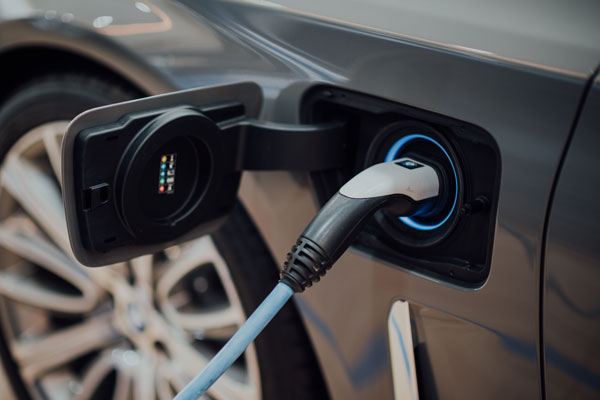The Art of Selling Electric Vehicles

Article Highlights:
- Increase staff training and build strategic relationships.
- Implement the right technology and emphasize incentives in F&I.
At this point, every automotive retailer has heard that “electric vehicles are the future.”
That’s actually inaccurate – the age of electric vehicles has already begun, and there are no signs that it’s slowing down: plug-in and hybrid vehicle sales have quadrupled globally since 2015. And when you look at the lucrative used vehicle market, both supply and demand for electric vehicles are rising quickly. According to Electric Mobility Canada, there are now 168,000 EVs on the road. Transport Canada aims to increase that number to 825,000 in 2025 and 2.7 million in 2030. It is still a niche market, but similar to lifted and accessorized trucks, it’s a highly profitable pre-owned segment if you can effectively buy, and more importantly, sell these vehicles.
Before you enter this market, you need to make sure your sales team is ready.
Train Your Staff on the Technology
Across the board, your associates need to become knowledgeable about the features of electric vehicles, but this is especially crucial for your sales staff. One way you can train your associates is through role-playing conversations about electric vehicles.
Vehicle lifespan, battery specs, and charging options should be foundational, base-level information for each EV on your lot. Just as you’d mention engine performance in a sales pitch for a truck, you should learn exactly how battery-electric cars perform and transmit that information to potential buyers.
It’s also critical to avoid grouping all EVs together in one category. EVs can vary significantly in size, range, and performance. A Tesla Model S and a Nissan Leaf will have vastly different features and buyers, despite the fact they are both powered by electric batteries. Research-driven customers will want to know which EV best fits their needs, so your staff needs to know what sets each one apart. For prospective buyers, seeing their options in person is a key step of their buying journey, and your readiness to engage with them will determine the outcome.
For example, there could be confusion in the buyer’s mind about how charging works. One way to clear up any misconceptions could be to offer a hands-on demonstration to see firsthand how they would charge their vehicle. It’s also vital to teach them about the options of an in-home charging device or point them to apps that can locate publicly available charging stations.
Selling EVs will require a higher degree of technical knowledge, but through coordinated training efforts, your sales staff can embrace opportunities to talk about electric vehicles with prospects.
Build Strategic Relationships
As EV technology continues to evolve, you may find prospective EV buyers have more questions and a longer buying process than traditional car customers. This means it could be necessary to heighten the management of your interactions with specific customers, which can be achieved with effective customer relationship management (CRM) software.
Ideally, you want your salespeople to lead customers to a purchasing decision, but it can be difficult to focus your efforts in the right place without an effective CRM. To boost both efficiency and effectiveness, this solution would help your team prioritize tasks and follow-up actions based on the likelihood to buy.
A key part of this is understanding different EV buyer profiles. For example, Teslas and Audi EVs are high-performance vehicles with very advanced tech features, meaning the type of buyer you should target for these vehicles is different from, say, an environmentally-conscious Millennial looking at a Hyundai Kona.
That same base of technical knowledge in your sales associates will also help them differentiate between prospective buyers for the various EVs in your store, and your CRM is vital support in this area.
Implementing an effective CRM solution also ties back to properly training your staff to sell EVs. You can use real data to coach your employees on both their strengths and weaknesses throughout every customer interaction.
Conclusion
EVs are here to stay. While North America is still adapting to EVs being more readily available, you can prepare your dealership to sell EVs with straightforward, intentional steps. By training your employees on the technologies behind EVs, prioritizing relationships with prospective buyers, and driving home beneficial incentives in F&I, your dealership can take charge of electric vehicle sales.
Related Articles:
If you were a customer, would you feel like your dealership gets you? Tailored communication, relevant follow-ups, and smart AI tools that match leads with the right…
70 percent of consumers turn to YouTube for things like reviews, test drives, or comparison analyses during their car-buying process, according to Millward Brown Digital.…
When I was ready to purchase my first vehicle, I was full of excitement. I thought nothing could bring me down and the only challenge…
For as long as I can remember, my family had “pizza night” every week. Without fail, every Friday evening we’d all gather around the computer…



















